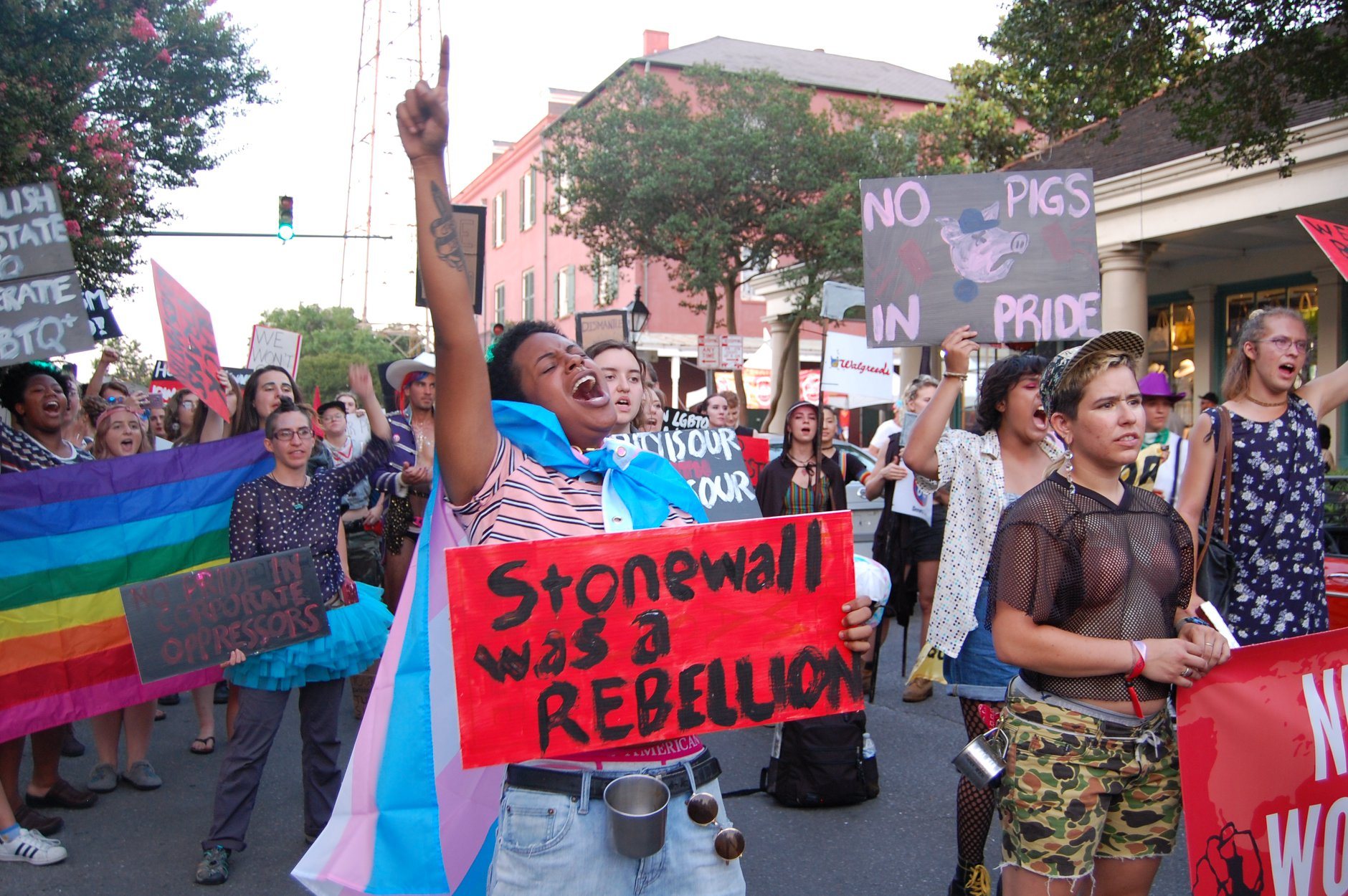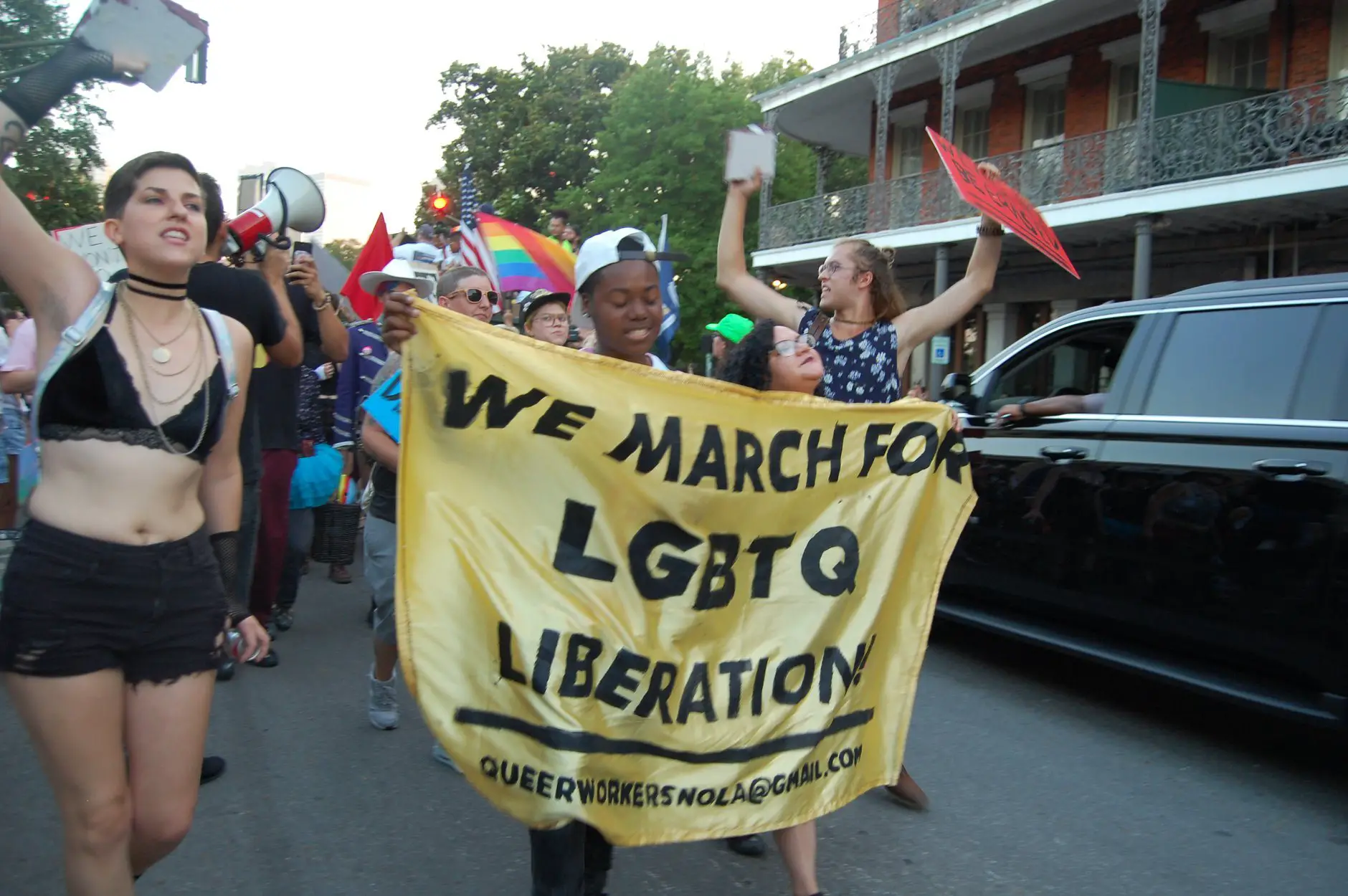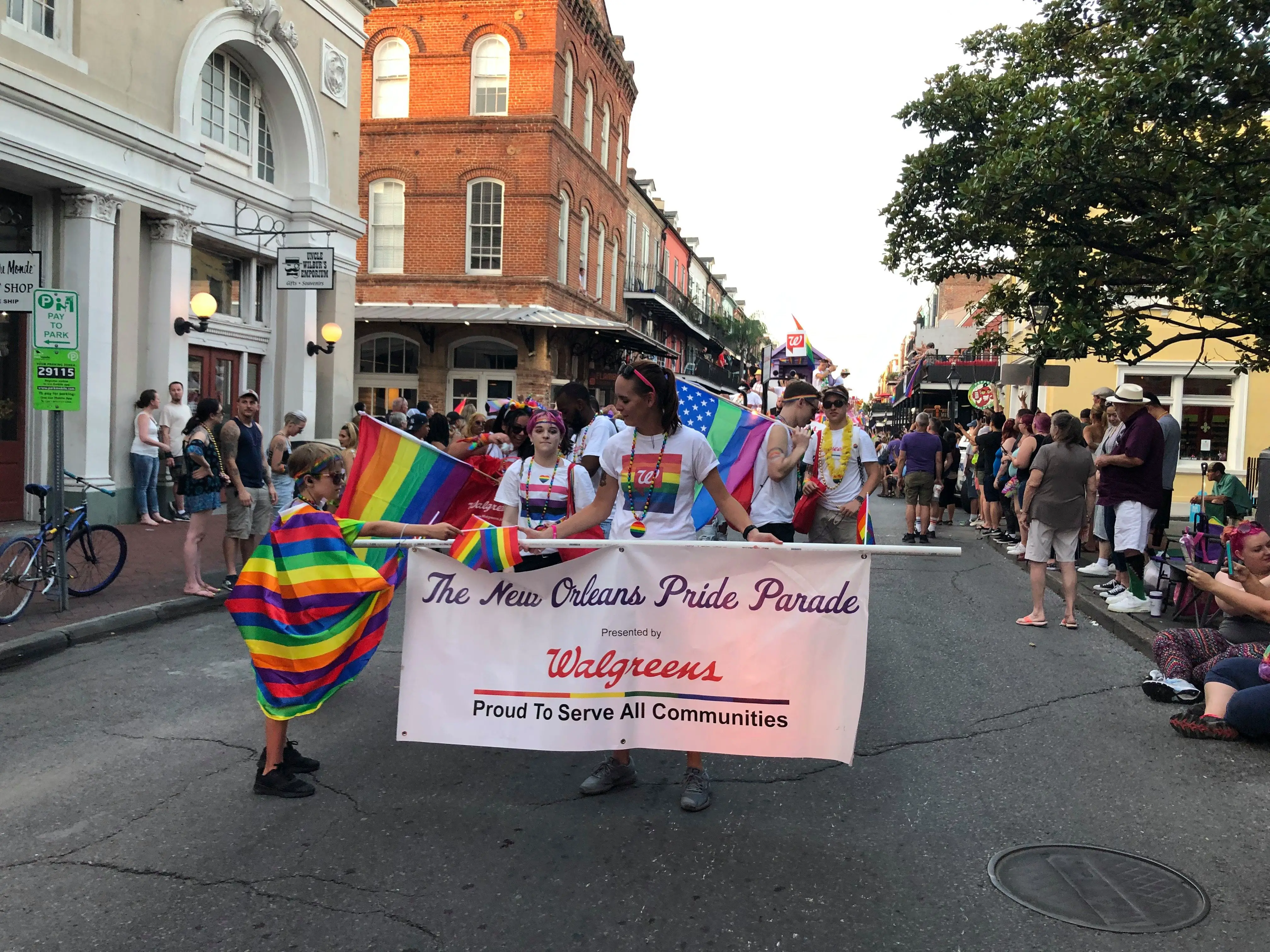
This past weekend, New Orleans, festooned in rainbow banners and glitter, hosted its official pride celebration. With brightly colored floats and music blaring, the parade’s floats rolled through the French Quarter, through the throngs of decked-out onlookers.
On the same day as the pride parade, another march took place. The ‘Take Back Pride’ march, was aimed at reclaiming the radical spirit of the first pride, the New York City Stonewall riot in 1969. While the official pride parade was sponsored by various international corporations, such as Royal Dutch Shell and General Electric, and had a police escort, the Take Back Pride organizers held the rally and demonstration to critique rainbow capitalism and collaboration with the police.

While Pride parades are now commonplace in American urban centers, they are are a far cry from the first Pride, when a group of (predominately POC) patrons from the Stonewall Inn, sick of police harassment, clashed with police in the streets. The ensuing riot was a firm declaration against conformism and policing in the queer community. It was an unapologetically radical statement, one that demanded rights for the queer and trans people who felt invisible and vulnerable in society.
Though the fight for equal rights has made the world a safer place for some people who are LGBTQIA+, this newfound security is mostly reserved for people who are cis, and white. People of color who are queer and trans still face higher levels of poverty, are more likely to lack access to health care than white queer and trans folx, and are disproportionally subject to violence.
At the same time, a corporate, sanitized pride—one mostly divorced from addressing oppressive paradigms that reinforce cis-heteropatriarchy, is a bland celebration that seems to tacitly endorse police brutality and environmental racism. When you go to pride in New York City, as I have, and catch a TD Bank rainbow custom silicone wristband, and you remember that TD Bank is an active partner in the Dakota Access Pipeline, that violated land sacred to the Standing Rock Sioux tribe and sponsored violence against their people, what do you do? Do you put that wristband on and try to get laid?
At New Orleans Take Back Pride, the march also wound through the French Quarter—till it collided with the official Pride Parade. The protesters faced the police heading the parade and chanted to the people on the floats and in the streets. One protester alleges that the police were confrontational with the protesters, and threatened some of the protesters.
On the other side of the police escort, some of the people in the official Pride parade held signs and wore t-shirts announcing the parade’s official sponsors—Walgreens, Royal Dutch Shell, and General Electric, to name a few.

Let’s talk about Shell for a minute.
This is a company that is explicitly part of the industry that has ended the Halocene geologic era, and is taking every living thing on earth (Including us gays!) further down a path of ecological collapse. If that weren’t enough to disqualify them from sponsoring Pride, Shell also engineered the destruction of the Niger River Delta in Nigeria through oil extraction and transportation and has also pumped toxic air pollution into the town of Norco here in Louisiana. Both incidences had devastating impacts on the Black communities that called these places home. Shell should have no place in Pride not only because they are inextricably tied to the degradation of the most vulnerable communities on earth through climate change—both human and non-human—but also because the corporation has a demonstrated history of disregarding Black lives
Then there is the issue of the cops flanking New Orleans Pride. Nationally, there is an epidemic of police violence against black and brown people. In New Orleans, the cops harass sex workers, people of color, trans and queer people. To endorse a police presence at pride is to prioritize the feelings of white people over the lives of black and brown people.
To reject a police-escorted, corporate sponsored Pride can seem like an affront to a celebration of sexuality and freedom of expression. But it is a recognition of those who cannot participate, and those who are utterly disregarded by capitalism itself, and victimized under a regime of police brutality and mass incarceration. While it may be true that rainbow branding can make some LGBTQIA+ people feel seen and heard, it does nothing to help people who are laboring for poverty wages, sometimes for the companies that are selling this vision of glitzy tokenization.
Says Sally Jane Black, one of the New Orleans Take Back Pride Organizers:
“The history of Pride is a history of resistance against oppression. Right now, LGBTQ people are under attack on every front, with black trans women being murdered in record numbers. Our rights are under assault in every way, from housing to health care to education. Now is the time to reclaim Pride as a militant and radical action, not a celebration of assimilation. We cannot fight for our liberation alongside those who fund and enforce our oppression—we cannot march in Pride with corporate sponsors and police. We have to fight back!”
Jesse Lu Baum is a queer writer and cartoonist originally from Brooklyn, New York. Her writing has been featured in publications such as Medium.com, The Jewish Daily Forward, The Mid-City Messenger and Preservation in Print. Aside from writing, she has also worked as a non-profit home repair person, a theater bartender, and a research assistant.










xxxhdfire.com melissa moore riding big black cock.
this is a very strong repudiation of the corporatization that has taken over Pride.